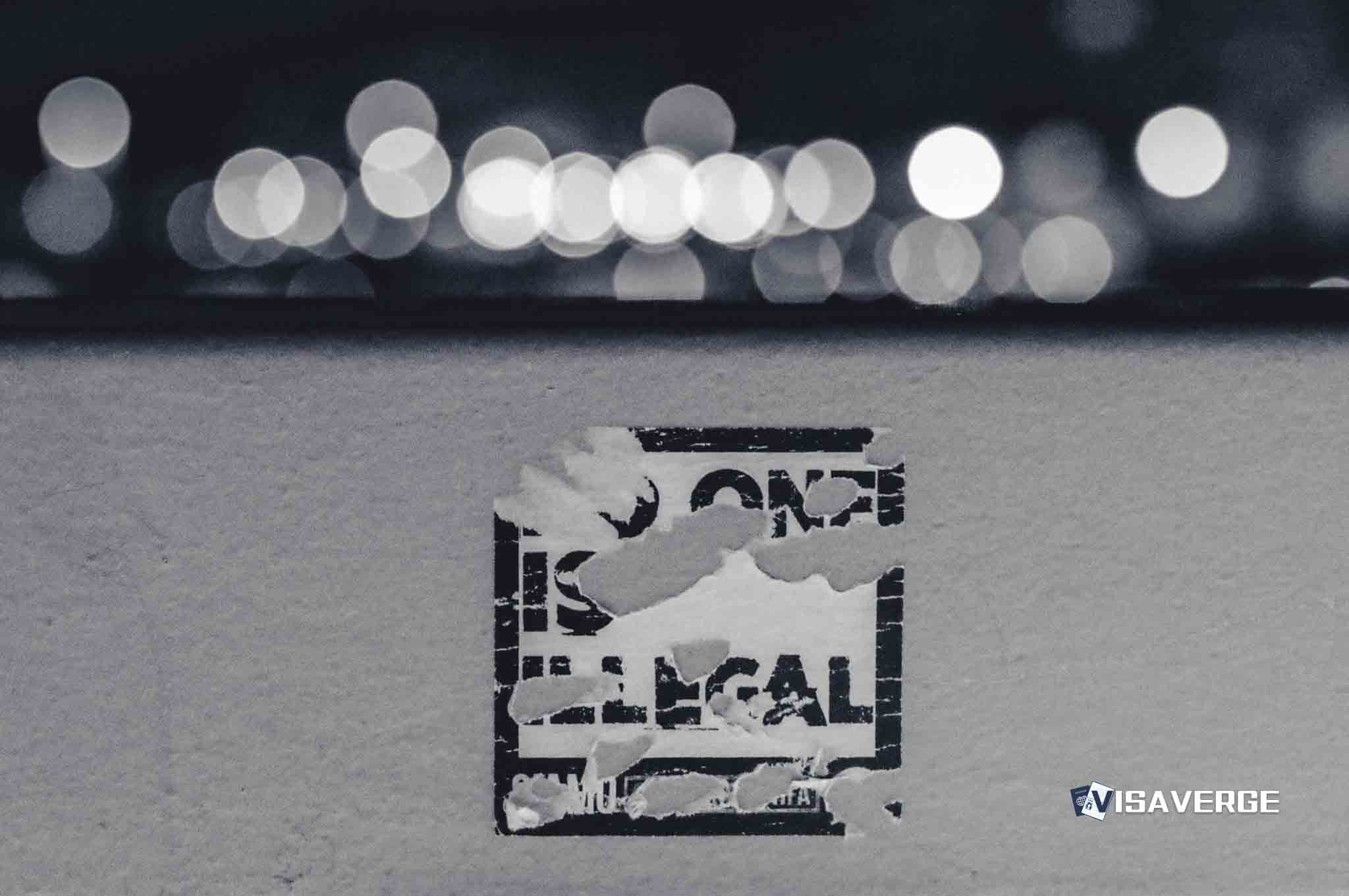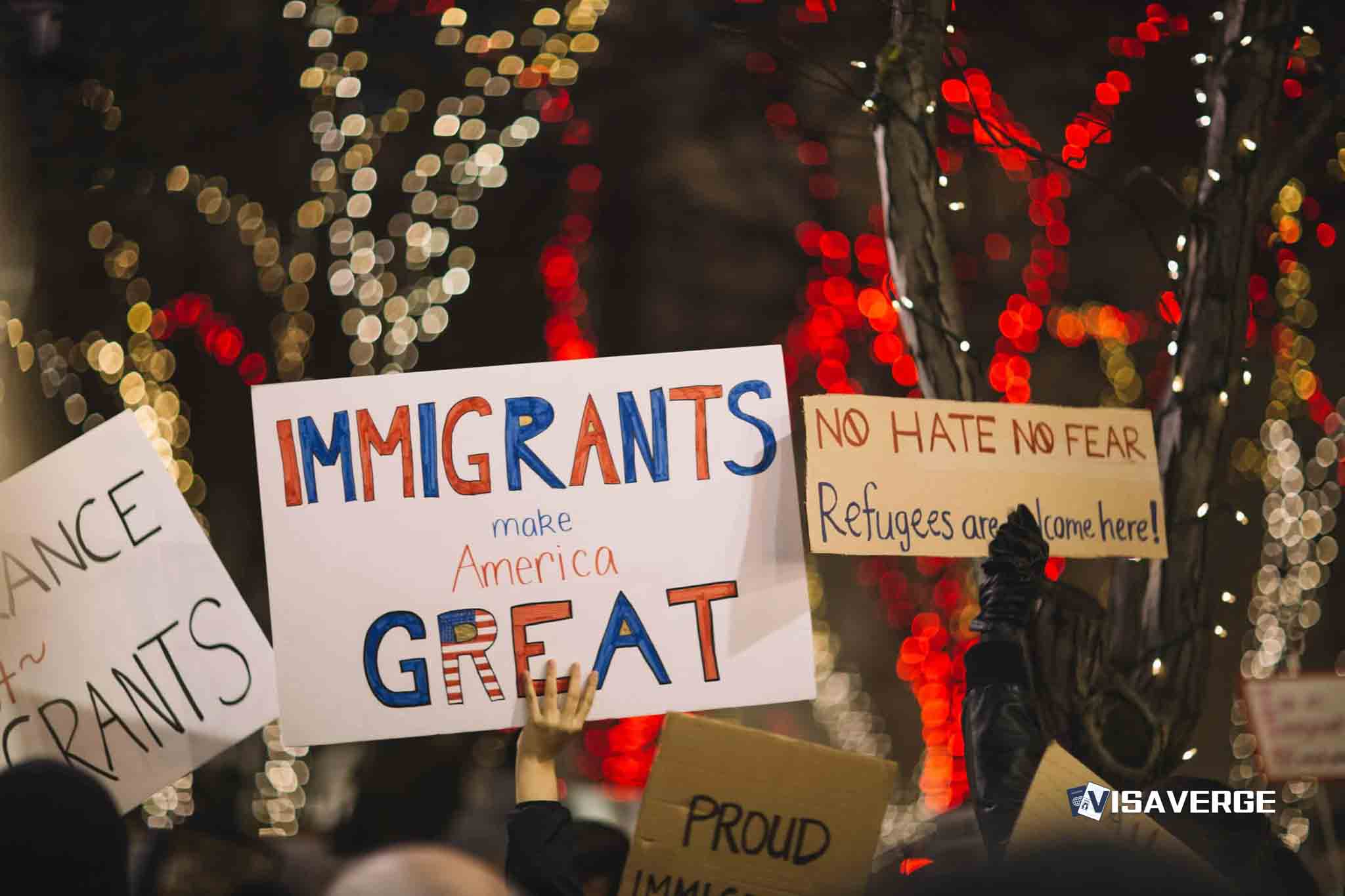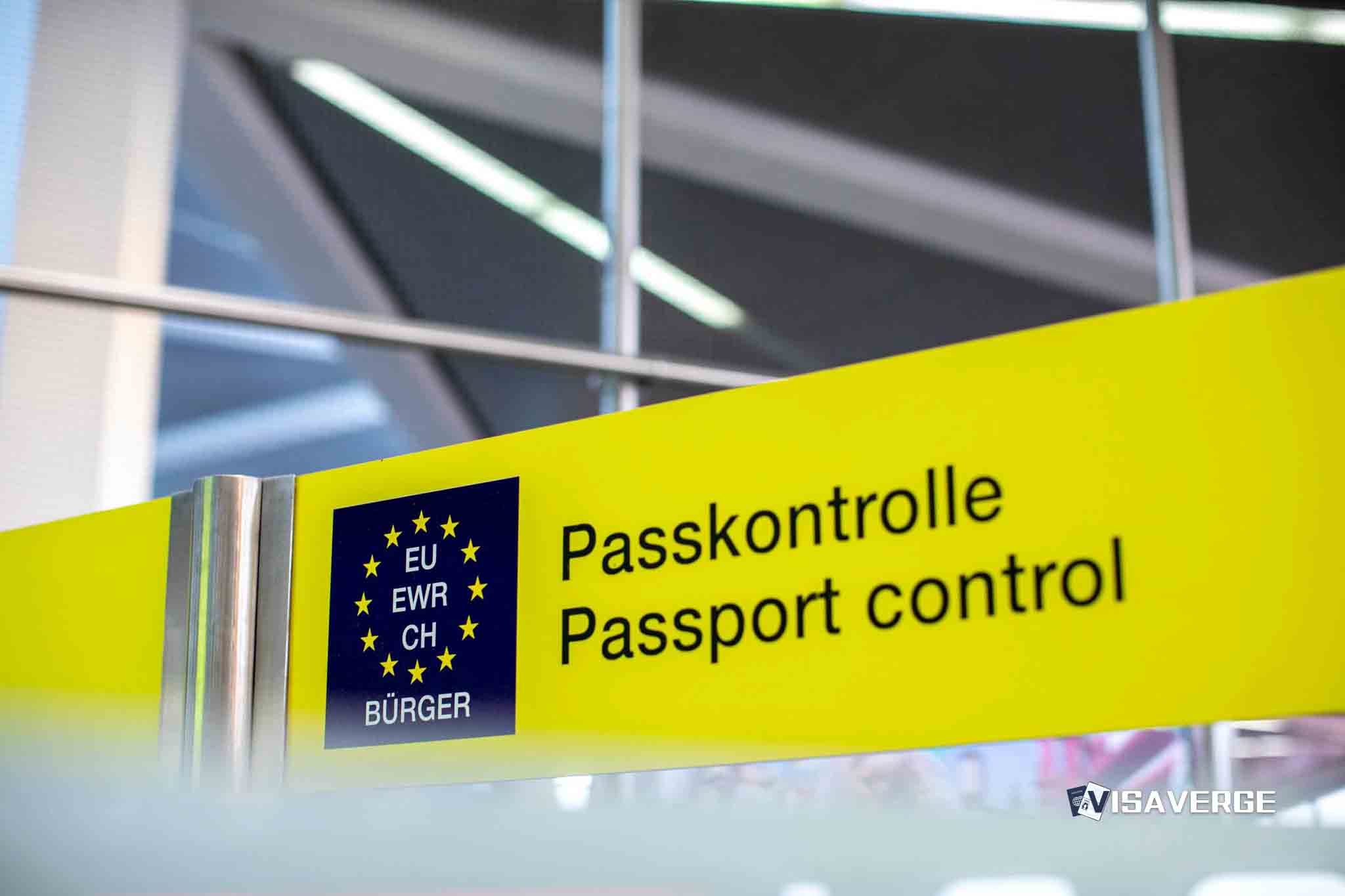Key Takeaways
• Judge Menendez ordered Harsono’s immediate release, citing retaliation for his political activism rather than credible safety concerns.
• Federal courts now emphasize First Amendment free speech protections apply equally to citizens and noncitizens, including student visa holders.
• Similar releases of international students Badar Khan Suri and Mohammed Hoque highlight a judicial trend scrutinizing ICE’s retaliatory detentions.
A federal judge has ordered the immediate release of Aditya Wahyu Harsono, an immigrant from Indonesia, after concluding that the U.S. government detained him in retaliation for his political activism, including support for Black Lives Matter and Palestinian rights. This decision follows recent concerns that immigration authorities are using enforcement actions against noncitizens who speak out on important political issues. The judge’s ruling stresses the importance of free speech for everyone, no matter their immigration status, and is part of a growing push from federal courts to prevent the government from targeting immigrants for their viewpoints.
Judge’s Ruling and Harsono’s Case

The order to release Aditya Wahyu Harsono came from U.S. District Judge Katherine Menendez, who found that his detention by Immigration and Customs Enforcement (ICE) was likely not about public safety, as claimed by federal agents, but was instead punishment for his political speech. Harsono, 34, lived in Marshall, Minnesota, for nearly a decade, working in hospital supply management while on a student visa. His arrest happened on March 27, 2025, when ICE officers — dressed in plain clothes — detained him at his workplace.
In a detailed 34-page decision, Judge Menendez said, “The Court finds it is more reasonable to infer that Respondents have detained [Harsono] in retaliation for his speech than because of any professed public safety concern.” According to the court, initial justifications for his detention shifted over time. First, officials pointed to an old misdemeanor graffiti charge, then later to supposed national security worries. The judge, however, said both explanations were not credible after reviewing the evidence.
Judge Menendez’s order is what’s known in U.S. law as a “writ of habeas corpus,” which is a powerful tool that allows people held by the government to challenge their detention in court. Granting this writ, the judge ordered ICE to free Harsono right away.
Why This Matters: First Amendment Protections for All
This case is important for a few key reasons. First, the judge made it clear that free speech—protected by the First Amendment of the U.S. Constitution—is not limited to just American citizens. Noncitizens, including people with student visas or other temporary statuses, have these rights as well. The court’s decision reads: “The First Amendment does not distinguish between citizens and noncitizens.”
For immigrants like Harsono, this principle can be especially important. It means that speaking out about political issues—such as protesting police violence after George Floyd’s murder or supporting Palestinian rights—cannot legally be used as a reason to arrest, detain, or deport someone.
A Pattern of Retaliation: Recent Cases
Harsono’s supporters argue that his experience is part of a larger pattern. Over recent years, legal groups and advocates noticed an increase in enforcement actions against immigrants or international students who have spoken out on sensitive subjects, including racial justice and Middle Eastern politics. In Harsono’s case, this meant he was detained shortly after he had joined demonstrations supporting Black Lives Matter and advocating for Palestinian rights.
Judges in several cases have pointed out that the government’s shifting explanations often do not hold up when examined in court. For example, the court rejected arguments that minor legal troubles or vague national security concerns justified keeping activists like Harsono detained. The facts of each case showed that officials paid more attention to the individuals’ political involvement than to any real threat.
Similar Court Rulings: Other Students Freed After ICE Arrest
Judge Menendez’s decision is not the only one of its kind. Recent cases in other parts of the country also saw federal judges order the release of detained international students who took part in protests:
- In Virginia, a Georgetown University student, Badar Khan Suri, won release from immigration detention after the court found no good reason for holding him other than his political activity. The judge there also stressed the necessity of treating noncitizens’ speech on the same level as citizens’ speech.
-
In Minnesota, Mohammed Hoque, a student at Mankato State University, was set free under similar circumstances. The courts ruled that his activism about foreign policy did not justify immigration detention, echoing the logic and constitutional protections in Harsono’s case.
These consistent outcomes from courts suggest that judges are closely watching immigration authorities’ actions at a time when public protests and campus activism have become more common, especially on topics like police reform and foreign conflicts.
The Changing Justifications for Harsono’s Arrest
Looking closer at Aditya Wahyu Harsono’s case, the government first tried to justify his arrest based on an old misdemeanor property damage conviction. This charge—related to graffiti—was not serious, and the judge found it would not normally result in immigration detention, especially after many years had passed since the incident occurred.
After news reports and public interest grew, ICE switched its justification. Officials then made broad claims about public safety and national security, though they provided little evidence to support those concerns. Judge Menendez, after reviewing the facts, said she did not find these arguments believable.
Instead, the court was persuaded by evidence from legal groups that showed a growing pattern of retaliation against immigrants for their speech. Advocacy organizations involved in Harsono’s defense pointed to other recent arrests of noncitizens active in racial justice protests or who had spoken out publicly about U.S. policies in the Middle East.
Why Free Speech for Immigrants Matters Now
This ruling comes during a time of heightened protest in the United States 🇺🇸. Protests for Black Lives Matter have continued since the police killing of George Floyd, just as demonstrations in support of Palestinian rights have spread following recent global events. Many of these protests involve large numbers of international students and recent immigrants who may worry about their legal standing should they take part.
The court’s strong language in Harsono’s case reassures these individuals that they do not lose their free speech rights. Judge Menendez’s written opinion leaves little doubt: political advocacy alone does not justify arrest or deportation. The U.S. Constitution protects free speech for all people, with no exceptions for visa status.
As reported by VisaVerge.com, courts increasingly see the risk that immigration enforcement could become a weapon against peaceful protest or criticism of government policies. This change in how federal judges respond could help protect both immigrants and citizens who want to speak out without fear.
How ICE’s Actions Affect Campus and Workplace Activism
Harsono’s arrest had a chilling effect on other international students and workers. At the hospital where he worked, coworkers expressed worry that simply attending a rally or speaking out about global issues could bring unwanted attention from federal authorities. In interviews and statements presented in court, legal groups representing Harsono pointed to the wider fear spreading among those on student or work visas.
ICE often has wide discretion to choose whom to arrest and when to exercise that power. In the past, a minor conviction or even suspicion of violating visa terms could lead to fast removal proceedings. But the recent decisions from federal judges remind ICE that these powers have limits, especially if officials appear to punish people for their political views.
The Role of Legal Advocacy Groups
In Harsono’s case, legal teams argued that the timing of his arrest—soon after his participation in Black Lives Matter and Palestinian rights demonstrations—made it clear this was not about public safety. After looking at emails, statements, and the timeline of events, the court found these arguments convincing.
Advocacy groups used public records and interviewed witnesses to show that immigrants are sometimes singled out because of their activism. Lawyers in these cases cite examples nationwide where ICE arrests followed student speeches, public protests, or outspoken social media posts. In court, this evidence carried significant weight.
National Security Claims and Judicial Skepticism
One feature of Harsono’s case is the government’s use of “national security” as a justification. After public backlash to his arrest, ICE shifted its reasoning and suggested that supporting protests could harm security. However, the judge looked for any real link between Harsono’s speech and a genuine threat and found none.
Federal judges across the country have responded with caution to similar claims, asking for facts and not just vague warnings. If the government cannot show a clear reason that someone is dangerous, courts are likely to order release, as happened in Harsono’s and other students’ cases.
Broader Implications of the Ruling
For students, workers, and other noncitizens currently in the United States 🇺🇸, this decision sends a powerful message. Immigration officials cannot use their powers to silence critics or target those who take part in lawful protest, no matter their nationality or visa status. By requiring strong proof before detention, judges protect the rights of everyone, not just citizens.
The logic of Judge Menendez’s order may apply in future cases wherever immigrants are arrested after political speech. As campus protests and social movements continue, legal observers expect more cases where courts must decide whether immigration enforcement is crossing a constitutional line.
What You Need to Know Going Forward
If you are an immigrant or international student in the United States 🇺🇸, Harsono’s case supports your right to speak out or join peaceful demonstrations. Courts are closely reviewing ICE actions in light of free speech protections. Legal help is available, and judicial oversight ensures that immigration detention cannot be based only on viewpoint or activism.
For the latest information on your rights, including recent rulings and updates on how free speech applies to noncitizens, you can visit the official U.S. Citizenship and Immigration Services (USCIS) website. This site provides resources for immigrants about their legal protections and guidance on what to do if facing detention or deportation.
Conclusion: The Path Ahead
The release of Aditya Wahyu Harsono after an ICE arrest that followed his support for Black Lives Matter and Palestinian rights is a turning point. Federal judges are saying clearly that the rules of free speech in the United States 🇺🇸 apply to everyone. Government reasons for detention that focus on viewpoint are being rejected in court, leading to the freedom of not only Harsono but also others, like students Mohammed Hoque and Badar Khan Suri.
This growing judicial trend protects the right of immigrants to raise their voices about important issues without facing retaliation from authorities. As social and political movements continue to grow, this legal protection is now more important than ever.
To learn more about current immigration laws and your rights related to peaceful protest and speech, refer to the USCIS official page for clear, up-to-date information backed by the government.
VisaVerge.com will keep watching these developments, making sure you have the facts you need to understand how free speech and immigration rules interact in today’s world.
Learn Today
Writ of Habeas Corpus → A court order enabling detained individuals to challenge the legality of their imprisonment before a judge.
First Amendment → Part of the U.S. Constitution protecting freedoms of speech, assembly, and association for all, including noncitizens.
Retaliatory Detention → The act of holding someone in custody as a response to their protected actions or speech, rather than for legal reasons.
ICE (Immigration and Customs Enforcement) → A U.S. federal agency responsible for immigration enforcement, including arrests and deportations of noncitizens.
Judicial Oversight → The review and supervision of government actions by courts to ensure legality and protection of rights.
This Article in a Nutshell
A U.S. federal judge ordered Aditya Wahyu Harsono released, ruling his ICE detention was retaliation for political activism. The decision highlights expanding free speech rights for immigrants, as courts scrutinize ICE justifications. Recent judgments affirm that noncitizens, including student visa holders, enjoy First Amendment protections against viewpoint-based immigration enforcement.
— By VisaVerge.com
Read more:
• Southwest Airlines Axes San Diego Skycap Service
• Schubach Aviation Plants Flag With Bold New York Office
• ICE Jails Kunal Oberoi Weeks Over Old Marijuana Charge
• Florida expands immigration enforcement with more deputized officers
• Office of Refugee Resettlement shifts focus from immigrant children care













